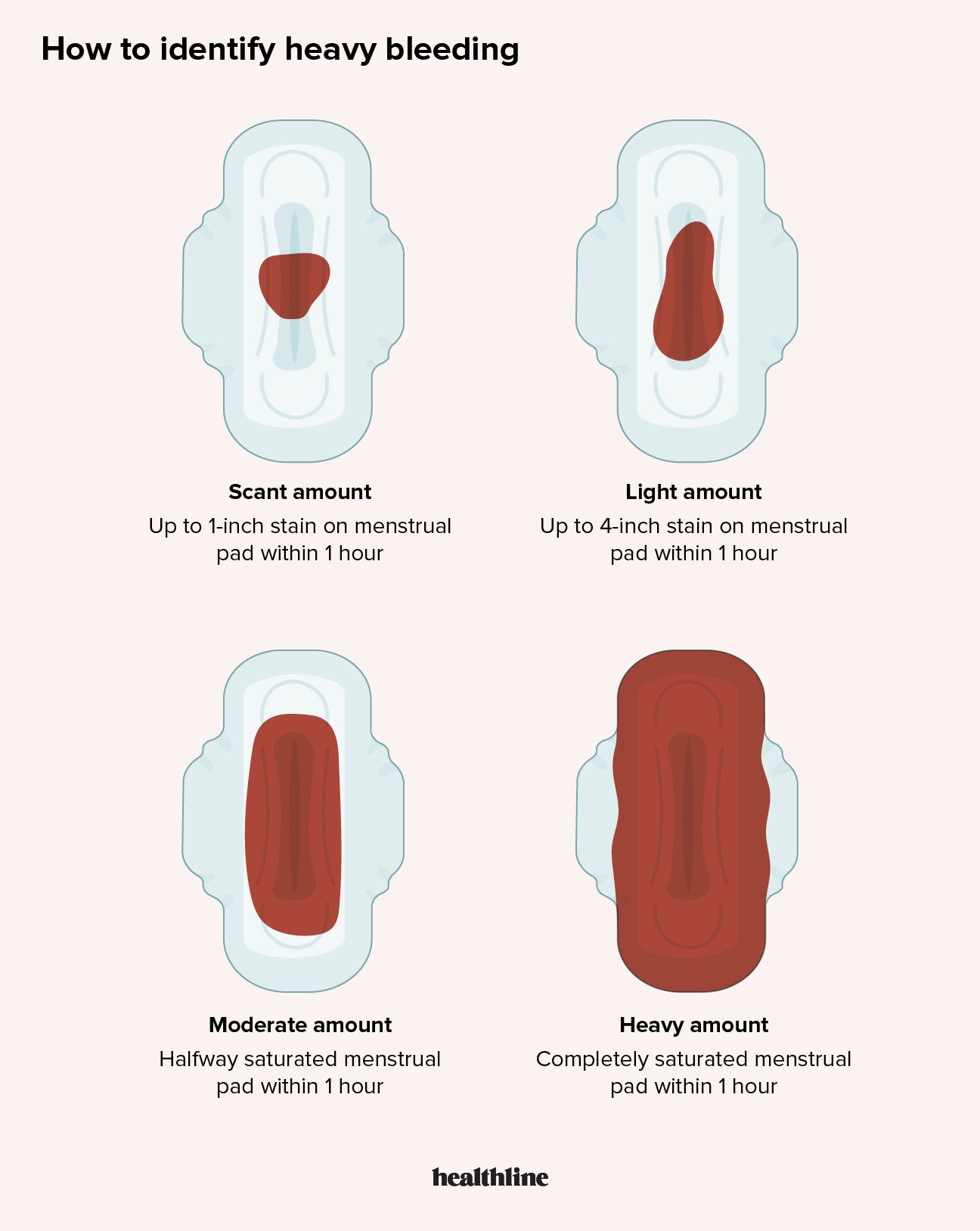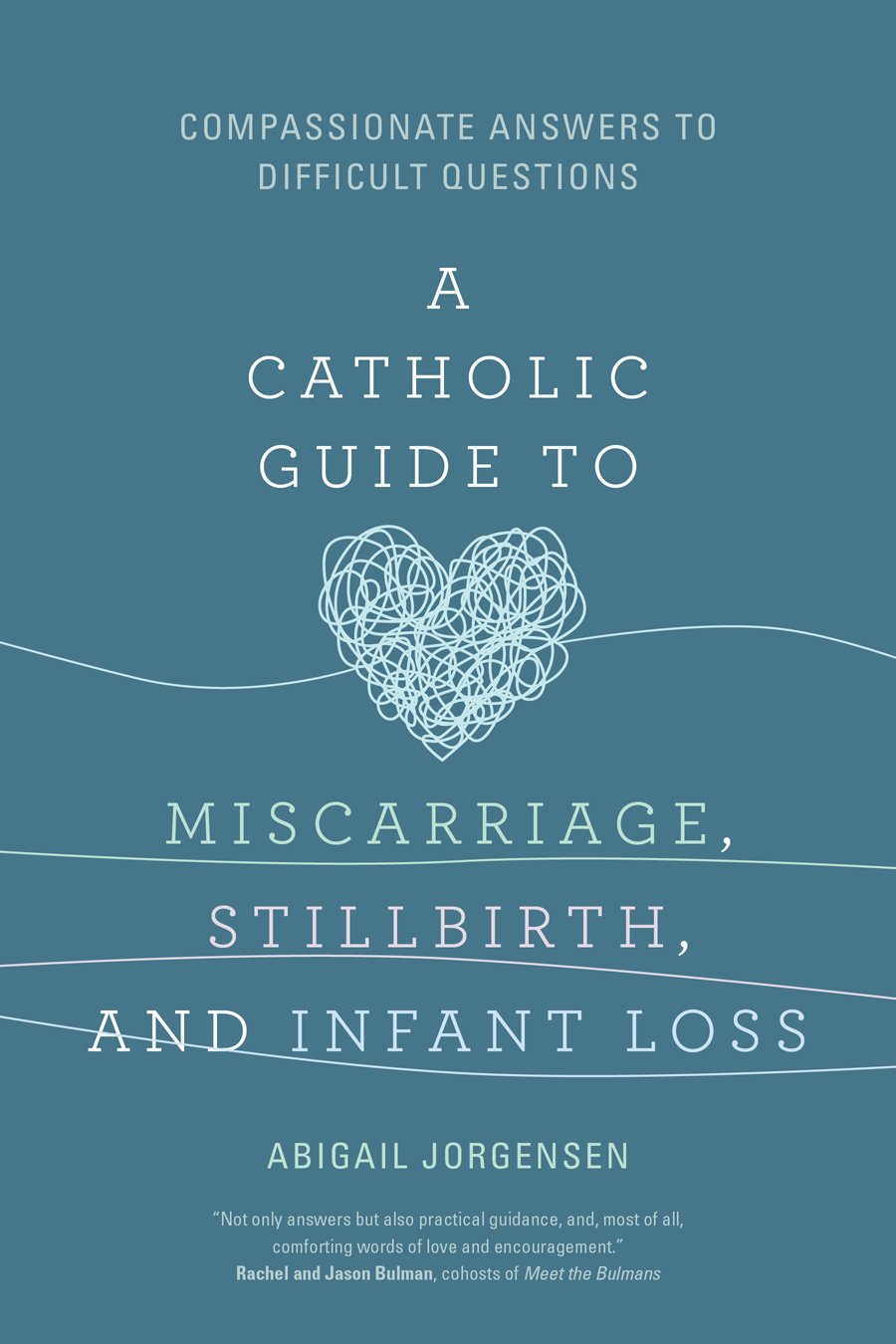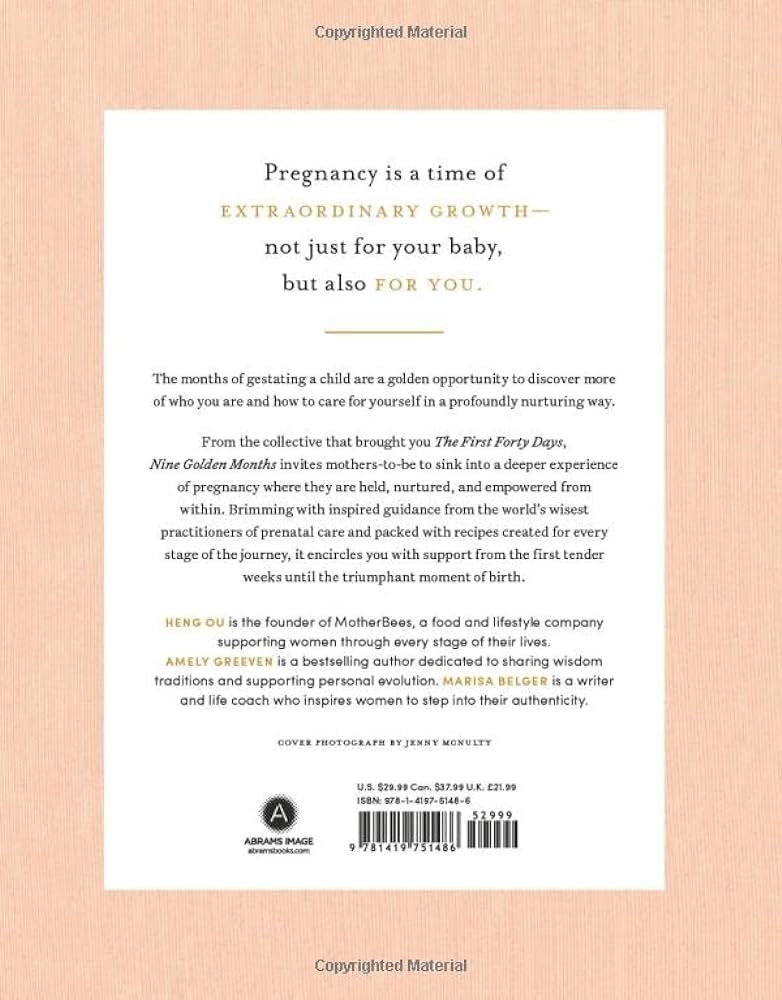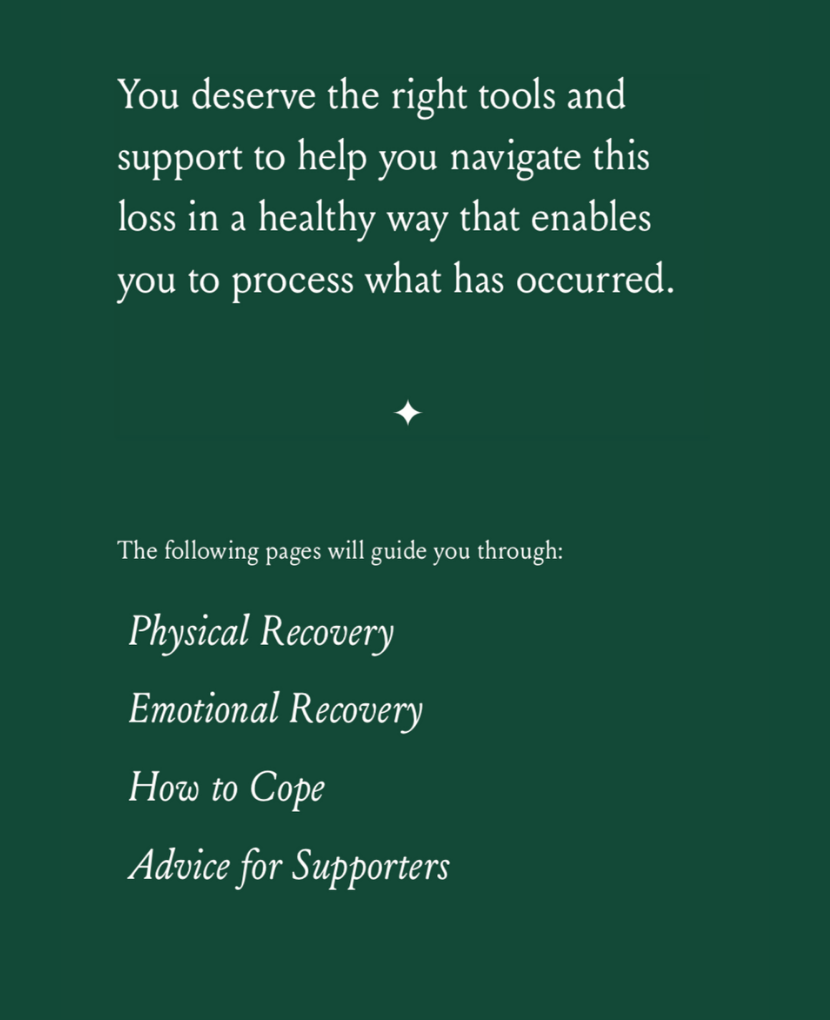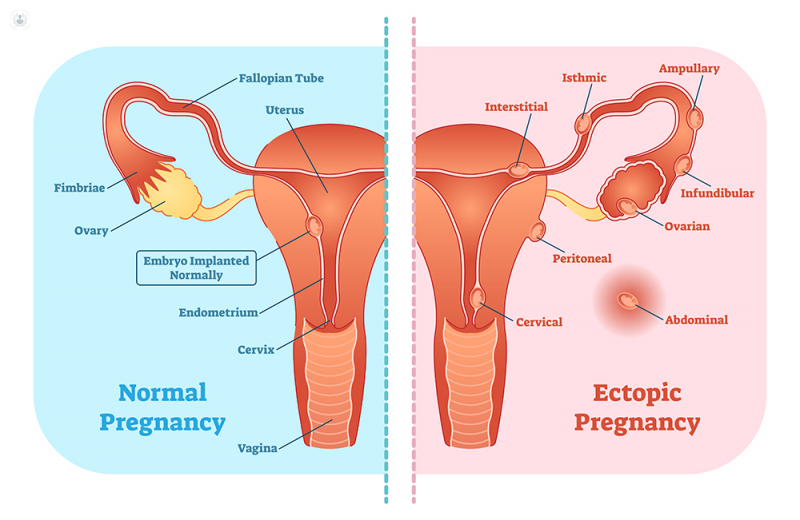A miscarriage is considered complete when symptoms such as bleeding and cramping have stopped, which an ultrasound can confirm by showing an empty uterus. Signs of persistent tissue may require medical intervention.
Understanding the end of a miscarriage is crucial for emotional closure and physical health. Miscarriage, a heartrending event for many, involves the body expelling pregnancy tissue before the 20th week, often naturally. A complete miscarriage means that the body has expelled all the pregnancy tissue on its own.
Ending the difficult physical process allows one to start the journey of healing. Confirming a miscarriage’s completion is vital to avoid complications such as infections or excessive bleeding. Medical professionals typically use symptoms, physical examination, and ultrasound findings to ascertain that the miscarriage has ended. A thorough follow-up ensures the well-being of the individual, paving the way for future reproductive health.

Credit: draxe.com
Identifying A Completed Miscarriage
Dealing with a miscarriage is tough. Knowing when it’s complete helps healing start. This post guides through the signs of a completed miscarriage.
Physical Indicators Of Completion
Several signs suggest a miscarriage has ended.
- Stopping of bleeding: Bleeding generally slows down and stops.
- Cramp relief: Intense cramping subsides.
- Pregnancy symptoms decrease: Nausea or breast tenderness fades away.
These signs show the body is recovering.
Confirmatory Medical Tests
Doctors use tests to confirm a miscarriage’s end.
- Ultrasound: Shows if the uterus is empty.
- Blood test: Checks pregnancy hormone levels.
Clear results from these tests give certainty.

Credit: www.lybrate.com
Common Symptoms Following Miscarriage
Experiencing a miscarriage brings physical and emotional pain. Recognizing the signs that a miscarriage has completed is a crucial step towards physical recovery. Certain symptoms indicate the process is over.
Bleeding And Spotting Cessation
Bleeding and spotting gradually lessen after a miscarriage. This is a signal that your body is healing. At first, you may notice a heavy flow. This should slow to a lighter bleed before stopping altogether. A complete stop in bleeding is a good indication of recovery. Use sanitary pads to monitor this process. Change them regularly to keep track of the bleeding amount and color.
Pain And Cramping Reduction
Another sign of a completed miscarriage is the reduction of pain and cramps. Cramping can be intense during a miscarriage as the uterus contracts. These should subside gradually. You may experience occasional mild cramps for a few days after the miscarriage. This is normal. Persistent or worsening pain may require medical attention.
- Abdominal cramping decreases
- Back pain eases off
- Overall discomfort diminishes
Emotional Impact And Recovery
Miscarriage is not only a physical event but also an emotional journey. Knowing when a miscarriage is complete can bring a sense of closure to the physical aspect of the experience. Yet, the emotional impact and the path to recovery can be complex and deeply personal. This section of our blog explores the emotional nuances of life after loss and the steps one can take toward healing.
Grieving And Emotional Milestones
Grief after miscarriage is a unique process for everyone. It often comes in waves and can be unpredictable. Recognizing emotional milestones is key to healing. These milestones include:
- Acknowledging the loss; it’s important to give yourself permission to grieve.
- Sharing your story; talking to friends or family can provide solace.
- Remembering the loss; some find comfort in rituals or keepsakes.
It’s essential to allow yourself to feel a full range of emotions during this period. Some milestones might be reached quickly, while others take more time.
Support Systems And Counseling
Building a robust support system is vital for emotional recovery. Surrounding yourself with understanding friends and family members helps provide the compassion needed. Professional counseling can also be beneficial. It offers:
| Benefit | Description |
|---|---|
| Expert Guidance | A professional can navigate complex emotions. |
| Safe Space | Counseling offers a confidential and non-judgmental environment. |
| Healing Strategies | Therapists provide tools to manage grief and foster resilience. |
Joining support groups where others share similar experiences can also help you feel less alone. Don’t hesitate to reach out if you need help during this time.
Physical Healing Process
The Physical Healing Process following a miscarriage is a time of both physical and emotional recovery. Each person’s body heals at its own pace. Recognizing the signs of a complete miscarriage can help in understanding one’s own healing journey. The resumption of the menstrual cycle and hormonal rebalancing are key indicators that the body is recovering.
Resumption Of Menstrual Cycle
After a miscarriage, the body begins to heal and return to its pre-pregnancy state. The first sign of physical recovery is the resumption of the menstrual cycle. This typically occurs within 4 to 6 weeks post-miscarriage. It is essential to monitor any changes and consult with a healthcare provider if the cycle does not resume in a typical timeframe.
- Normal menstrual flow
- Duration of periods
- Regular cycle patterns
Hormonal Rebalancing
Hormonal rebalancing is a crucial part of the healing process. Following a miscarriage, it can take time for hormone levels, such as estrogen and progesterone, to return to normal. Signs of hormonal rebalancing include:
- Stabilization of mood swings
- Lessening of pregnancy symptoms
- Steady energy levels
It is critical to allow oneself patience and self-care during this time. Tracking any persisting symptoms or concerns is advised for follow-up with a healthcare professional.
When To Seek Medical Attention
Knowing when to seek medical attention after a miscarriage is crucial for your health. While the body often completes the process naturally, complications can occur. Being aware of warning signs and understanding the importance of follow-up care can help ensure your well-being during this difficult time.
Warning Signs Post-miscarriage
It’s important to monitor your health closely after a miscarriage. Some symptoms necessitate immediate medical attention. Look out for the following:
- Heavy Bleeding: Soaking through more than one pad an hour is not normal.
- Severe Pain: If pain relief does not work, seek help.
- Fever: A fever could be a sign of infection.
- Chills: Along with fever, chills can indicate infection.
- Unusual Discharge: A foul-smelling discharge may signal infection.
Follow-up Care And Assessment
After a miscarriage, follow-up care is essential to ensure that your body has fully recovered. A healthcare provider will assist with:
- Evaluating your physical recovery.
- Discussing emotional support options.
- Planning for future pregnancies, if desired.
They may perform an ultrasound or blood test. These tests check that all tissue passed from your body. Schedule a follow-up appointment typically two weeks after the miscarriage. This ensures that everything is clear and you are healing properly.

Credit: www.medicalnewstoday.com
Looking Forward: Planning After Miscarriage
The end of a pregnancy through miscarriage marks a time of deep emotion and physical recovery. As the body heals, many look toward the future with hope, considering what comes next. Making plans after a miscarriage can be a step towards healing, both physically and emotionally.
Future Fertility Considerations
Knowing when it’s safe to try for another pregnancy is a common concern. This timeline varies for everyone. Consult with your doctor for personalized advice. General guidelines suggest waiting one to three menstrual cycles. This ensures the uterus is ready to support a new pregnancy. Healthy lifestyle choices are crucial during this period. They include:
- Maintaining a balanced diet to provide your body with essential nutrients.
- Regular exercise to enhance physical well-being.
- Avoiding smoking and drinking alcohol to prevent potential risks.
- Considering prenatal vitamins, like folic acid, prior to conception to support fetal development.
Keep track of your menstrual cycle. A regular cycle is a positive sign of fertility returning. Note changes and discuss them with your healthcare provider.
Embracing Hope And Resilience
Emotional recovery is just as important as physical healing. Feeling hopeful after a loss can feel challenging. Yet, resilience grows from support and self-care. Key steps to embrace hope include:
- Giving yourself time to mourn and accept the loss.
- Seeking out support groups or counseling to navigate grief.
- Engaging in activities that bring you joy and relaxation.
- Communicating with your partner about your feelings and future plans.
Setting small, attainable goals can provide a sense of control. Celebrating small wins helps rebuild hope. Each step forward honors your loss while looking to the future.
Frequently Asked Questions On How Do You Know Miscarriage Is Complete
What Are Signs Of A Complete Miscarriage?
A complete miscarriage typically includes symptoms such as the cessation of bleeding and cramping, and the passage of pregnancy tissues. A follow-up ultrasound can confirm that the uterus is empty.
How Long Does A Miscarriage Last?
The duration of a miscarriage can vary, typically lasting from a few days to two weeks. Bleeding and pain should gradually subside as the miscarrying process concludes.
Can A Miscarriage Fully Resolve Without Intervention?
Many miscarriages complete naturally without medical intervention. However, in cases where tissue remains, medical treatment or a procedure like dilation and curettage (D&C) may be necessary.
What Should You Monitor After A Miscarriage?
After a miscarriage, monitoring includes checking for excessive bleeding, severe pain, or fever, as these could indicate complications. Also, emotional support and follow-up appointments with a healthcare provider are important.
Conclusion
Determining the completion of a miscarriage is a crucial step in the healing journey. It requires medical assistance and attentive self-care. Be sure to seek support and consult your healthcare provider for peace of mind and proper guidance. Your health and well-being remain paramount.

